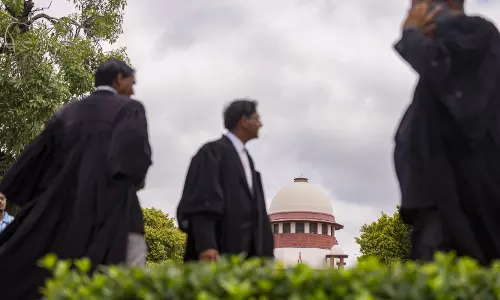
'Compromise' no basis to dismiss sexual harassment case: SC
text_fieldsNew Delhi: A sexual harassment case cannot be dismissed because the parties reached a ‘compromise’, as the Supreme Court ruled on Thursday, setting aside a Rajasthan High Court ruling in such a case.
The apex court said that the impugned order is quashed and set aside, and the criminal proceedings must proceed in accordance with law, Bar and Bench reported.
The court’s verdict was reserved in October 2023. It questioned whether a high court could exercise power under Section 482 of the Code of Criminal Procedure (CrPC) to quash a sexual harassment case on the basis of a compromise agreement between the accused and the complainant.
The SC verdict was over a case registered under the POCSO Act and SC/ST (Prevention of Atrocities) Act. A minor girl had accused a government school teacher of sexual harassment, and her father filed a complaint with the police.
However, the girl’s family and the accused reached a compromise, and the latter moved Rajasthan High Court to dismiss the case. The accused submitted that the girl’s family registered the complaint due to a misunderstanding, and they no longer wish to proceed forward with it. The high court considered and accepted the accused’s plea and quashed the criminal case.
However, an unaffected third party moved to the Supreme Court, challenging the high court order.
At first, the top court maintained that an unaffected party could not file a plea in a criminal case, but it eventually decided to examine the matter. It ordered the victim’s father and the accused to be made a party to the case.






















